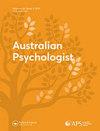Furthering the person-first versus identity-first language debate
IF 2
4区 心理学
Q2 PSYCHOLOGY, MULTIDISCIPLINARY
引用次数: 1
Abstract
ABSTRACT The use of person-first language (i.e., the person with a disability) versus identity-first language (i.e., the disabled person) is a source of ongoing debate. Proponents of person-first language argue for its use, so as not to objectify or stereotype a person by their illness or disability. Conversely, advocates of identity-first language state that it affirms pride in the person’s disability. Overall, however, there is a growing use of identity-first language. Both proponents of person-first and identity-first language are aligned in their quest to maximise respect and inclusivity of people with disabilities and health conditions. Limited research examining the language preferences of those with disabilities and/or medical issues has been mixed. The majority of the research has focused on autism, multiple sclerosis and deaf/blind populations. In some cases, studies have methodological issues, and researchers have concentrated on the perspectives of students, employees and counsellors. Factors that may influence preferences, such as disability type, severity, acceptance and identity, have not been adequately examined in the research. Future research is required to gain an evidence-based understanding of language preferences that can improve social inclusion for people with varying disabilities and health conditions. KEY POINTS What is already known about this topic: (1) There is ongoing debate about the use of person-first versus identity-first language. (2) Both proponents of person-first and identity-first language are aligned in their quest to maximise respect and inclusivity of people with disabilities and health conditions. (3) Some disability scholars have proposed that psychologists use person-first and identity first language interchangeably. What this paper adds: (1) An overview of previous research finds that much has not been conducted in people with disabilities and is inappropriate for generalisation more broadly (2) There is a deficit in knowledge about factors that may influence language preferences, such as disability type, severity, acceptance and identity which have not been adequately examined. (3) Future research is required to gain an evidence-based understanding of language preferences that can improve social inclusion and maximise respect for people with varying disabilities and health conditions.推进个人优先与身份优先的语言辩论
个人第一语言(即残疾人)与身份第一语言(即残疾人)的使用是一个持续争论的来源。“以人为本的语言”的支持者主张使用这种语言,这样就不会因为一个人的疾病或残疾而使其客观化或刻板化。相反,“身份优先”语言的倡导者认为,它肯定了人们对自己残疾的自豪感。然而,总体而言,身份优先语言的使用越来越多。“以人为本”和“身份优先”语言的两个支持者在寻求最大限度地尊重和包容残疾人和有健康问题的人方面是一致的。有限的研究考察了残疾人和/或有医疗问题的人的语言偏好,结果好坏参半。大部分研究集中在自闭症、多发性硬化症和聋哑/失明人群上。在某些情况下,研究有方法论问题,研究人员集中在学生、雇员和辅导员的观点上。可能影响偏好的因素,如残疾类型、严重程度、接受程度和身份,在研究中尚未得到充分审查。未来的研究需要获得基于证据的语言偏好的理解,这可以改善不同残疾和健康状况的人的社会包容。关于这个话题已经知道的:(1)关于使用“个人优先”还是“身份优先”的语言一直存在争论。(2)“以人为本”和“身份优先”语言的支持者在寻求最大限度地尊重和包容残疾人士和健康状况不佳的人方面是一致的。(3)一些残障学者提出心理学家可以交替使用以人为本和身份第一语言。本文补充的:(1)对先前的研究进行了概述,发现很多研究没有在残疾人身上进行,并且不适合更广泛地推广(2)关于可能影响语言偏好的因素的知识不足,例如残疾类型,严重程度,接受度和身份,这些因素没有得到充分的检查。(3)未来的研究需要对语言偏好进行基于证据的理解,以促进社会包容,最大限度地尊重不同残疾和健康状况的人。
本文章由计算机程序翻译,如有差异,请以英文原文为准。
求助全文
约1分钟内获得全文
求助全文
来源期刊

Australian Psychologist
PSYCHOLOGY, MULTIDISCIPLINARY-
CiteScore
3.70
自引率
5.30%
发文量
32
期刊介绍:
The Australian Psychologist is the official applied practice and public policy journal of the Australian Psychological Society. As such, the journal solicits articles covering current issues in psychology, the science and practice of psychology, and psychology"s contribution to public policy, with particular emphasis on the Australian context. Periodically, Australian Psychological Society documents, including but not limited to, position papers, reports of the Society, ethics information, surveys of the membership, announcements, and selected award addresses may appear in the journal.
 求助内容:
求助内容: 应助结果提醒方式:
应助结果提醒方式:


